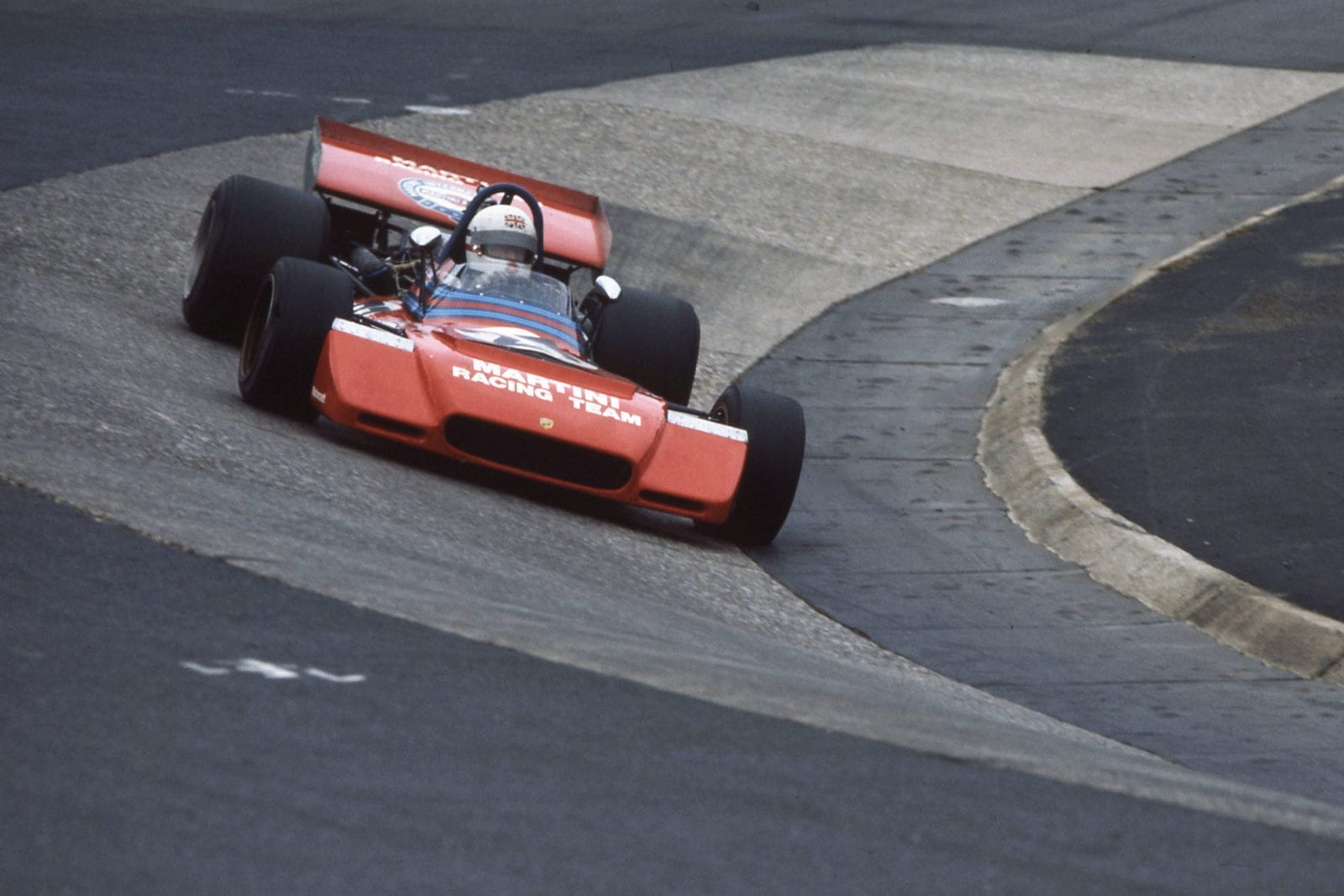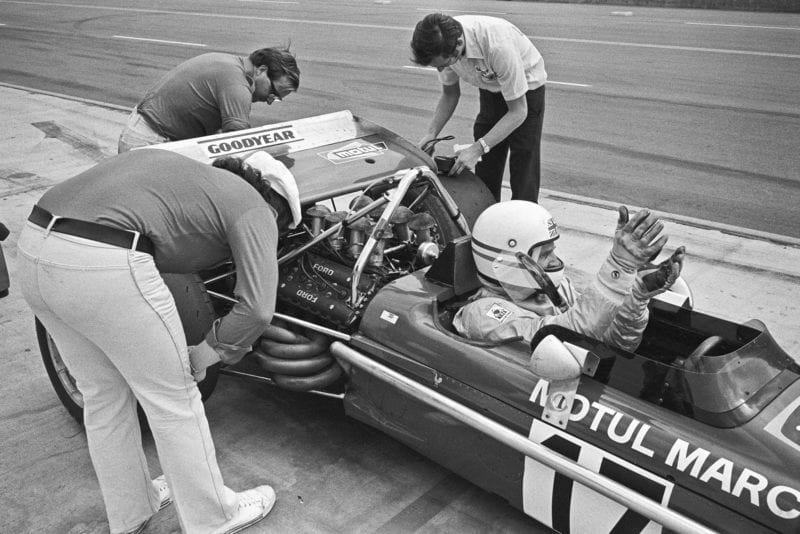My greatest race - Derek Bell
As good as it gets – but not at Le Mans or in a Grand Prix. Britain’s greatest sportscar ace Derek Bell reckons his unexpected downshift from Formula One to Formula Two also brought one of his great drives

Derek Bell during his F1 days at the Nürburgring - but it was his F2 exploits which he holds in highest regard
Getty Images
1970 Formula Two Championship, Montjuich Park, Barcelona
Everyone always assumes that when I choose my best ever race I would come up with something from sportscars or Formula One, but on reflection there is one race that stands out as being more satisfying than any of the above a Formula Two round in Barcelona in 1970.
I rarely mention it as an event, but it was one of those occasions when, on all fronts, I felt I could not lose. There is a real sense of achievement in driving a single-seater so quickly on a tight circuit like Montjuich Park. In cars like the little Brabham I had that day, you are really out on your own.
I had just been spat out from Ferrari because we had not achieved anything together and had gone back to Formula Two. I could, I suppose, have let things get on top of me, but there I was back in the formula and doing very well.
The Spanish race was the third of the season and it really felt like we just snuck in to Barcelona that weekend. The whole affair from our point of view was very low key: a privately entered Brabham Tom Wheatcroft was financing the season with just the one spare engine. And the next thing I knew I was fighting with people like Henri Pescarolo, Francois Cevert, Emerson Fittipaldi and Carlos Reutemann for pole position.
Looking back through my scrap book after all these years, I note that come race day, I also got fastest lap and it seems so intriguing that I should do so well there. We all know that if everything is just right for somebody, then they can pull something out of the hat, but there were some pretty good drivers there and I suppose I just fell in love with the track from lap one.
I had never set eyes on it before we turned up in Spain, but there has always been a certain attraction to me in venues that you could not take a risk on; where being exact at every corner was paramount. Montjuich was just that sort of circuit, so while it was always daunting, the attraction of sliding out towards the guardrail as you exited the corners, using every inch of available asphalt, was what it was all about.
I guess we all thought of it rather like Monaco, where we had all driven in Formula Three. I approached it a bit like that and that put me in good stead for the practice.
On top of the thrill of driving in Barcelona came all the hype that surrounded the race itself. It was the biggest motorsport event of the year for Barcelona – like a Grand Prix really – and the people turned out in what seemed like their thousands.

Bell during the 1971 Questor Grand Prix in Ontario
Getty Images
I’m sure I benefited from having the Brabham there that weekend. The BT30 was never the best car in the field but you knew that it was always going to be there or thereabouts whatever kind of track you were racing on. I’d always believed that about Brabhams and that was probably my biggest error when I was still racing in Formula Three in the ’60s. I could have joined Brabham in my first season, but got caught up in the all the glamour and romance that came with Lotus. The very same thing applied in that season of F2. Very often someone like Clay Regazzoni would be quicker than us over a lap in his Tecno 70, but the Brabham would never let you down. You could kiss barriers, hit kerbs and the thing would just hang together.
It all sounds rather easy now, but I can remember telling myself how vital a good start was going to be come race-day, so once the flag dropped and I nosed in front of Pescarolo I did something that I still tell young drivers to do today: shut your eyes to the mirrors and just drive as if you are the only person on the track. The second you look in the mirrors you put yourself off.
As we flew up the hill at the start and down through the hairpin I can remember the car drifting like mad and I knew at that moment that we had it right. It was quite a long race to keep your concentration up on a tight circuit – well over 100 miles – but I just drove my balls off and didn’t let the people behind upset me. I don’t think as a driver you should ever be able to make the excuse that you were ‘off-song’ but everything went right that day. The engine was right, the tyre pressures were spot on, the wing angles exact. It was all very different to racing in the ’90s, where you are at the mercy of your equipment or other people’s technological advancements.
Out there on the Barcelona track it was just me and the car, so very different to a race like Le Mans or even a three-hour sportscar race. There were no drivers to hand over to, no pit-stops to make, just me and 45 laps to keep it off the walls and dare not make a mistake.
Perhaps my greatest race is a long way from what people might expect of a driver who has done so many; there were no wheel-to-wheel battles just the sense of the perfect, precise drive. I knew that having been so quick in practice I was as good as anyone out there, it was just down to doing it in the race. I think if you had told me on the grid that the likes of Fittipaldi would be world champion within a couple of seasons, I might have been a bit more nervous about it all, but I just knew that I was in the right frame of mind and that is what is so satisfying about it now.
